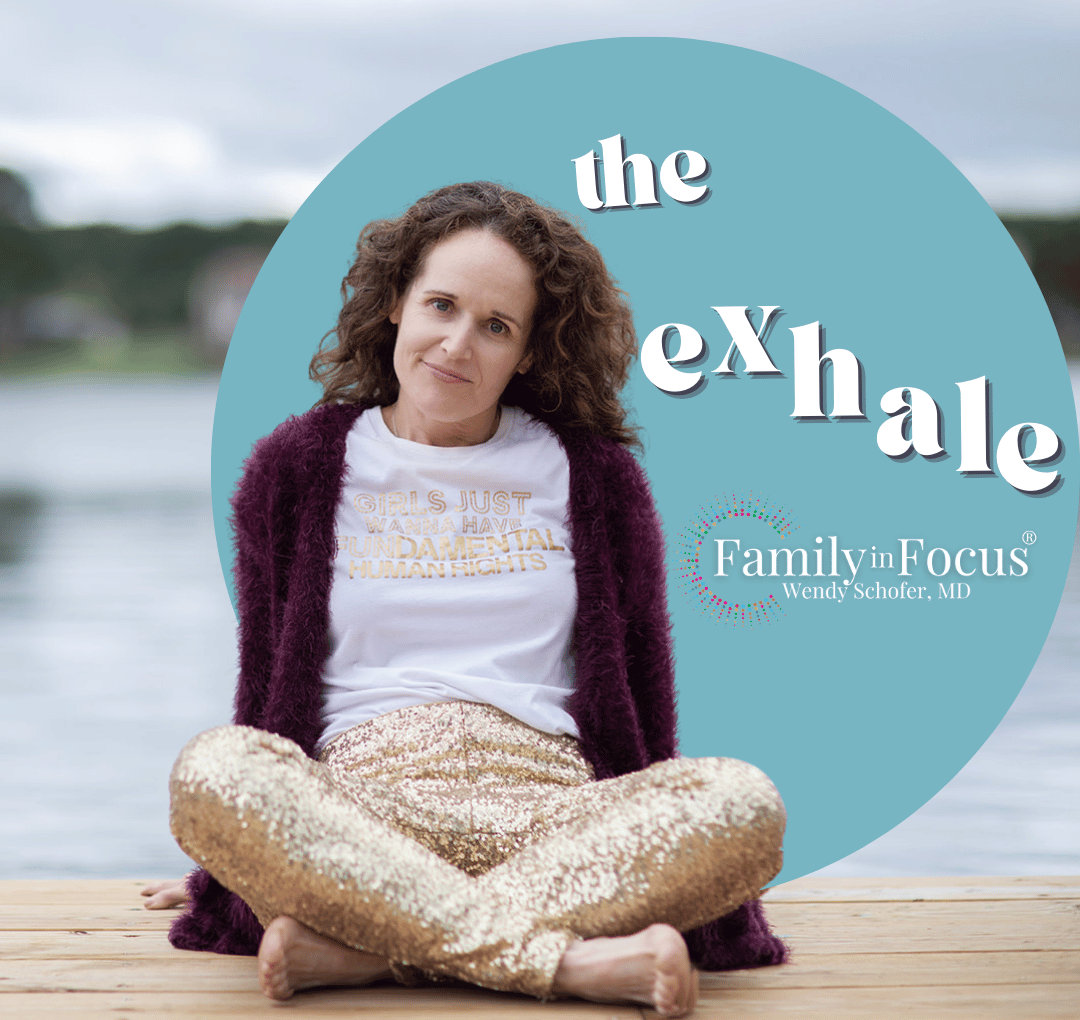
I help you parent without all the food and body drama.
What’s the drama?
Over the next few weeks (yeah, I haven’t figured out how many installments yet!), we will talk about what makes up the drama.
One that comes up for a lot of parents, and especially physician-parents (ahem, I know a few of them):
You are concerned for health.
Cut to a conversation I've heard a number of times:
“Oh, Lizzo is a wonderful performer, and so active on stage, but I’m just concerned about her health.”
That’s bologna.
She’s a woman in a larger body. Let’s stop talking about her health.
We know nothing about her health.
We just use health as a euphemism for her body and her weight.
That spills over, my friend, to our homes. Our pre-teen girls who hear us lament Lizzo’s “health.” Or our fretting over our family’s health based on food choices and pants sizes. You may not say it, but you’re thinking it – I’m afraid for my child’s health when they weigh ___ pounds.
My friend, you stink at poker: your kids can see through the worry. What they see is the way you look at them, the way you hold back on serving them seconds, and the way you question if they really want ice cream.
The thing is, one’s weight doesn’t say anything about their health, nor about their long-term health outcomes.
We’ve been fed this false narrative that skinny = healthy/healthier.
That’s so not true. And yet, I’ve been in on it as well. I feared gaining weight not for the esthetics, but for me, my slimness meant that I was healthy - and that’s what I wanted to project as a physician, a military officer, and as a parent.
I wanted to be the “picture of health.”
What the hell does that even mean?
I’m staring at a picture of my family on my desk right now.
Is that the picture of health?
Or isn’t it?
We hear examples of folks who carry more weight without any metabolic consequences (look at their blood and there’s nothing amiss; look at their vital signs and they’re all fit as a fiddle). They just have “extra” weight. And then there are folks who carry less weight and they have high cholesterol and blood pressure, and perhaps a messed up way that they treat their body to maintain that lower weight.
Health isn’t something we can define by looks. And I dare say as a physician, health is not something that someone else can define for YOU.
Health is not a weight or an appearance.
Health is not something that you achieve. It is not static or a snapshot in time.
Health is a collective, dynamic (constantly moving) state of investments and withdrawals that support life.
I think in pictures - so my definition of health looks like the health bar on a video game. It is constantly moving depending on what you’re investing, or spending.

I was asked once what the health investment means - and that’s when it became clear to me: health is a collection of investments that we are making all the time. It’s a balance of what builds you up and what zaps your reserves.
It is not either-or. There’s no healthy or unhealthy. There’s no health vs illness. Because I can still have health amidst chronic and even acute disease. I see that all the time in the office. Kids who look great, but have a cold. They still have health. Same thing with folks who have a diagnosis like cancer: they still have health, despite the disease. And there are tons of ways to support your health.
So let’s go back to our homes, with our kids:
Weight does not define health.
Clothing size doesn’t define it.
Mental health diagnoses do not define health (case in point: I know lots of people who live with anxiety or depression or OCD and they have health).
We define health by the steps that we take every single day to support ourselves and our families.
We have the opportunity to stop making judgments through the lens of what is healthy.
This is going to take some undoing, and what I often spend time with clients on 1:1. We have been enculturated to believe that skinny = healthy. That fat = unhealthy. That fat = disease and diagnoses.
Your first step right now: notice how often you consider health in your assessments of what to choose for your family: food choices as healthy or unhealthy.
Is there concern about an unspecified health outcome with someone’s weight: your own, your child’s, your partner’s?
And then… ask, is this TRUE? I know that we’ve been taught a lot of things, but truly… is it as simple as a healthy choice vs an unhealthy choice? Does it help you to think of your family as healthy or unhealthy? Are you fearing things in the future, which may not ever happen?
My friend, we’re going to keep unraveling all of this. It’s a big old knotted ball of yarn. And I’ve got you.
If you are ready to dive in and apply all this drama-busting 1:1 with me, hop on over here. I have a limited number of spots open right now. I’m ready. Are you?
Check out the Family in Focus with Wendy Schofer, MD Podcast!
Stay connected with news and updates!
Join our mailing list to receive the latest news and updates from our team.
Don't worry, your information will not be shared.
We hate SPAM. We will never sell your information, for any reason.


